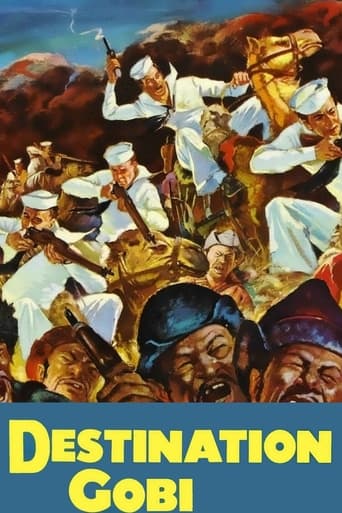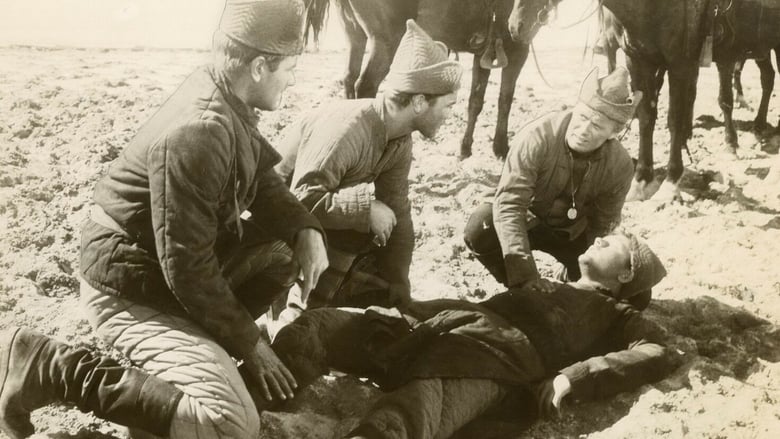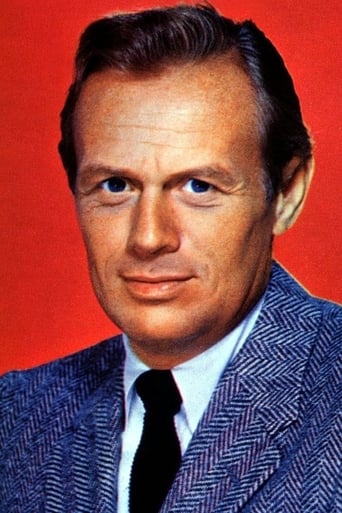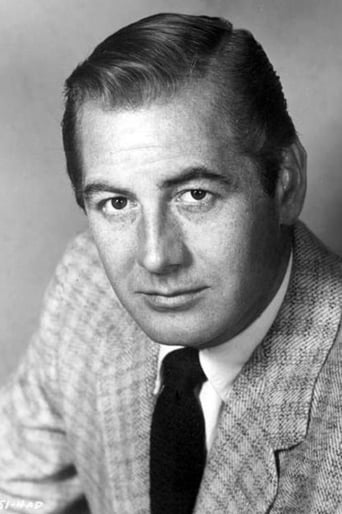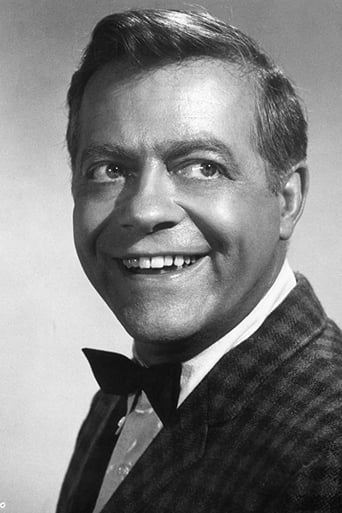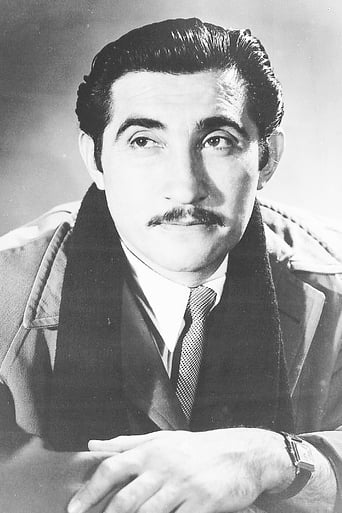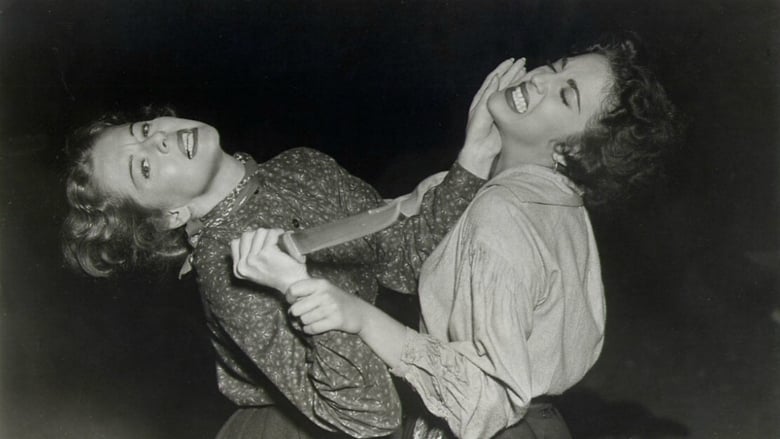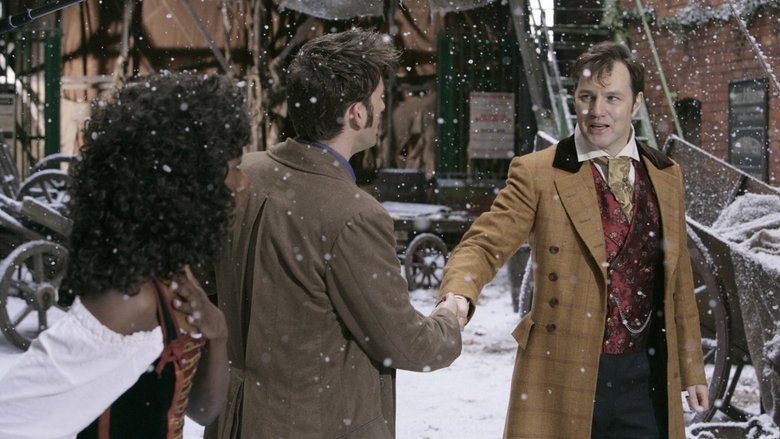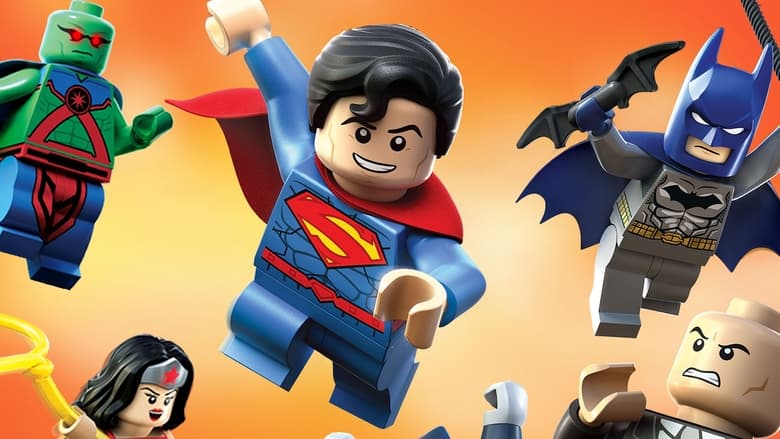A group of US Navy weathermen taking measurements in the Gobi desert in World War II are forced to seek the help of Mongol nomads to regain their ship while under attack from the Japanese.


Similar titles
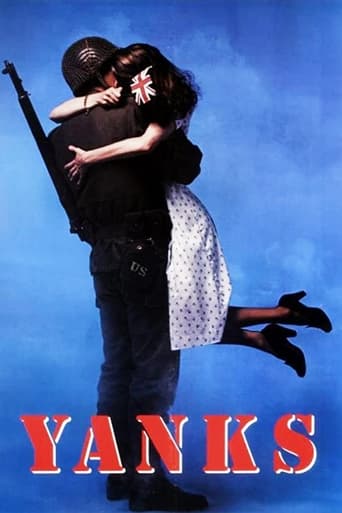
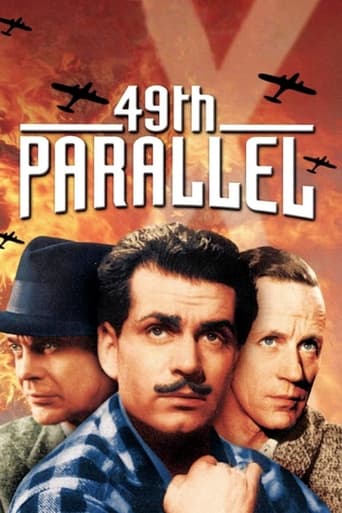
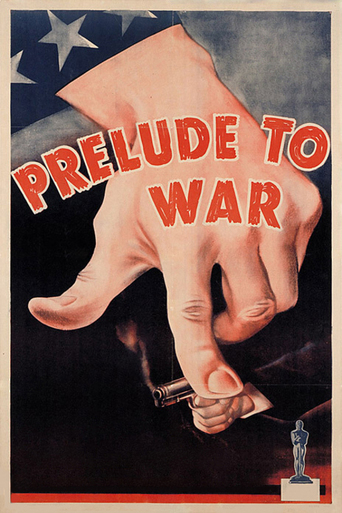
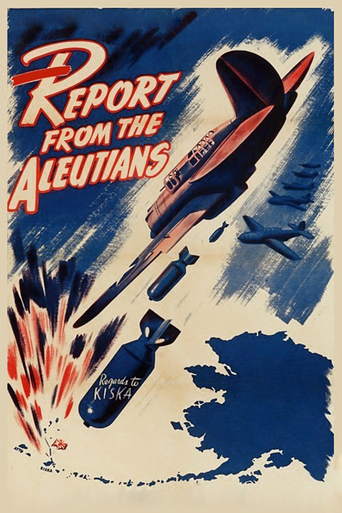
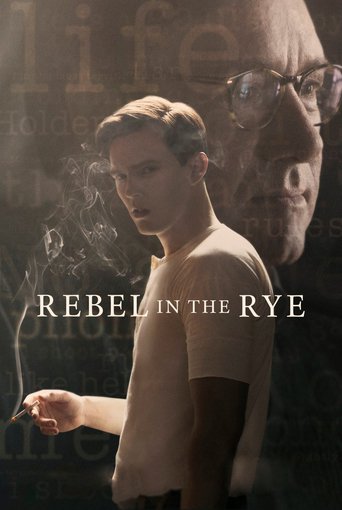
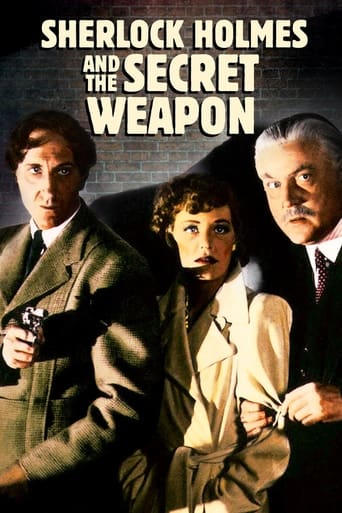
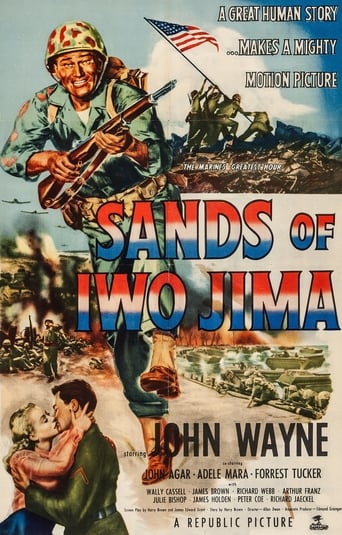
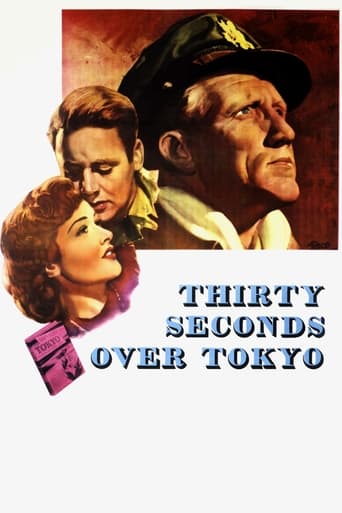
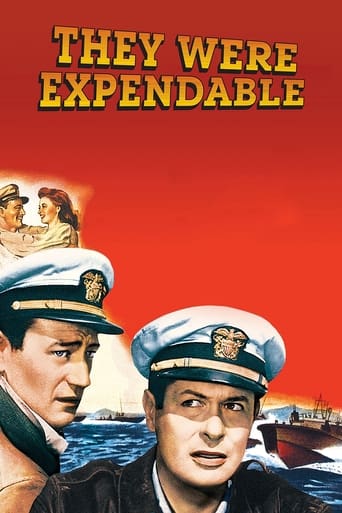
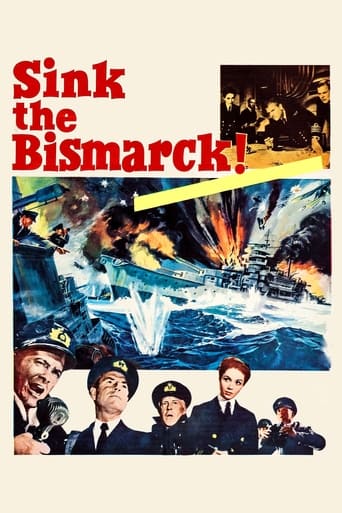
Reviews
(Spoilers) I wholly disagree with the couple of reviews above. The movie portrayed the Mongols as civilised, intelligent, insightful and ultimately outsmarting all the others portrayed, by securing the safety of the US forces. They spoke their own language amongst themselves and were only shown using monosyllabic English when communicating with the Americans. Exactly what you would expect from people whose knowledge of English was very limited. OK, this not the best movie ever made, but shot in Technicolor and mostly on location, it is worth a view for that alone. As for being "triumphalist", that is just not the case. How does being saved by the Mongols come across as triumphalist? The Japanese were, if anything, portrayed as far more humane then their actual behaviour in WW2. As for the plot, it was based on true events. Any attempt to jazz it up for entertainment's sake would have been wrong.
Although he has no interest in any assignment other than one at sea, a sailor by the name of "CPO Samuel T. McHale" (Richard Widmark) is sent into the middle of the Gobi Desert during World War 2 to assist a meteorologist set up a weather station. Not only does he have to deal with the inhospitable weather but his team also has to be alert for Japanese patrols and Mongol bandits as well. Although it had the advantage of being film in color during a period when most movies were produced in black and white, this particular movie didn't have the excitement and grandeur that I honestly expected to see in a picture of this type. Perhaps it was the extremely basic dialogue or the general lack of suspense but something seemed to be missing. Now that's not to say that this was necessarily a bad movie because it wasn't. However, I personally think it could have been better and as a result I have rated it accordingly.
I saw Destination Gobi in 1953. I looked for a copy of the movie for years until I was able to get it on DVD. I have watched this movie several times since, and enjoy each viewing.I differ from some of the more critical reviews. Too often the reviews come off as the "want-to- be movie critics", who seem to nitpick this and that. They fail to recognize that some movies are meant for just entertainment. Destination Gobi falls into this category. It wasn't meant to become Movie of the Year, nor to compete with Gone With the Wind.I have most of the war movies made in my DVD library. World War II created many Hollywood opportunities in creating movies, along with governmental approval to boost patriotism. And, Hollywood produced many, some great, others poor. Movie goers liked some, disliked others. It's just a matter of one's own personal view of what they're looking for in a film. If it's for their desire to have an opportunity to become a pseudo-movie critic, then so be it. I watch movies for entertainment
Hollywood was awash with triumphalist movies about the US military's comrades-in-arms in the first 10 years after the war in a self-congratulating furore to re-write history according to US attitudes and prejudices. You know the routine: sassy one-liners, everyone's nickname is "Mac" or "Buddy", everyone looks like a hero, serious leg-wounds that hospitalize us mortals are laughed off as inconvenient flesh-wounds that only need a quick bandage. Not for the Japs or Jerries, of course. The nasty-horrible baddies pepper the battlefield with bullets and grenades and one US hero dies; the US lieutenant fires his pistol once and a squadron of Nazi tanks explode and a thousand enemy soldiers writhe on the floor in screaming death-throes. Ha, ha, ha... ho, ho, ho... this is how we won the war, boys! It's so clichéd it could pass for pantomime.Destination Gobi is no exception. Watching this movie demonstrates how much our attitudes have changed.This is another one of those movies, but with the added bonus of being set in the Gobi Desert... if the Gobi Desert looks anything like California. The Mongols are suspicious savages - little more than replicas of the caricatured American Indians, but wearing supposed Mongolian clothes instead. The Mongols ride big, US Cavalry style horses and speak in monosyllabic words. They steal stuff from the US navy men. They want to kill one of them for using a camera, naturally. Makes sense, of course... since the Mongolians are ignorant savages who don't respect the brave US military servicemen and they all think a little camera's going to kill them.It never occurred to the film-makers to actually visit Mongolia and find out that the Mongolians ride small but sturdy ponies, live on a diet of goats and sheep milk and meat, learn how to wrestle for a centuries-old tradition of annual competitions, thunder across the desert and steppes on their ponies for countless miles in great tribal gatherings, have a typical Far Eastern respect for foreigners and strangers and their possessions and are a modest, reserved breed of people who live a tough existence in one of the most windswept places on earth. If the film-makers had, the Mongolians in this movie wouldn't have ended up looking like Klingons in fur caftans.Of course, the brave, all-knowing US servicemen in this movie drill the Mongolians in cavalry techniques. Only stands to reason, naturally. If it weren't for the US Cavalry in the Middle Ages, Genghis Khan wouldn't have sacked China, traversed the endless Russian Steppes, crushed a mighty East Indian kingdom guarded by walled fortress cities, crossed the unexplored Arabian Desert, sieged Baghdad while it was being invaded by Crusaders, and thundered into a startled Europe.Having been raised on a diet of such laughable caricatures and cultural superiority (as we all were in the 1960s, 70s and 80s), is it any wonder that the US faces current levels of fragile international relations?
